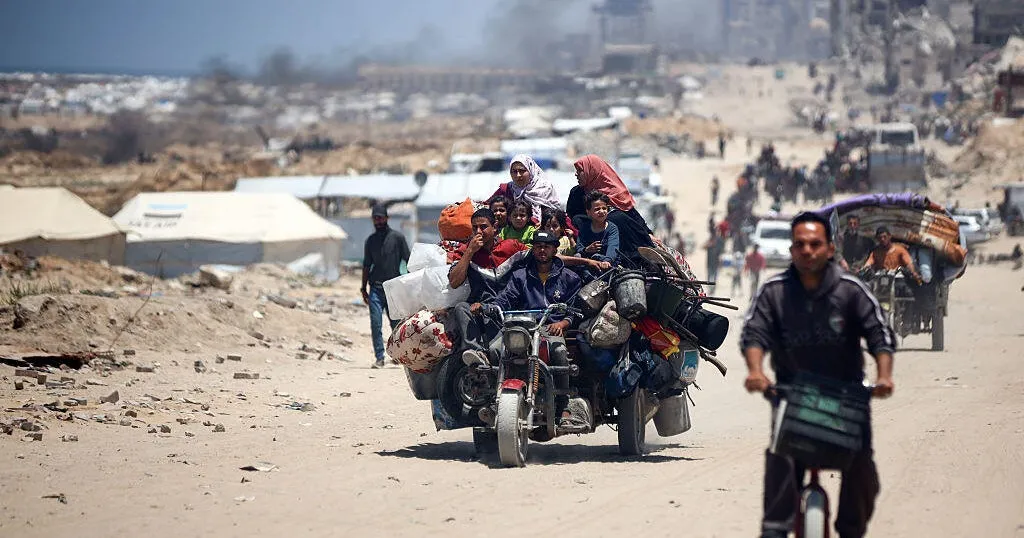The number of aid trucks being allowed to enter Gaza last week is only a "drop in the bucket" of what is actually needed to stave off potential famine in the territory, the head of the U.N. World Food Program said.
Cindy McCain, the program's executive director, warned that the blockade by Israel of Gaza - which Prime Minister Benjamin Netanyahu says is to pressure Hamas into releasing the rest of the hostages - has caused a catastrophe for the 2.3 million Palestinians living there.
"Right now, we have 500,000 people inside of Gaza that are extremely food insecure, and could be on the verge of famine if we don't help bring them back from that," McCain said Sunday on "Face the Nation with Margaret Brennan." "We need to get in, and we need to get in at scale, not just a few dribble of the trucks right now, as I said, it's a drop in the bucket."
In March, Israel ended a ceasefire and renewed its offensive in the territory, vowing to destroy Hamas and bring home the hostages Hamas still holds from the Oct. 7, 2023 terrorist attack that triggered the war. Hamas has said it will only release the hostages in exchange for a lasting ceasefire and an Israeli withdrawal.
Israel also blocked the import of all food, medicine and fuel for 2 ½ months before allowing a small number of aid trucks to enter in the last few days. The move only came after warnings from experts of a famine in Gaza and after pressure from some of Israel's top allies, including the United States.
During the ceasefire, the U.N. food aid program was getting upwards of 600 trucks a day into the territory. But now, only about 100 are being allowed to enter, McCain said.
"It's not nearly enough, and it needs to be going to the correct places," she said.
McCain also pushed back on Israel's claims that Hamas is responsible for the looting of 15 aid trucks, saying there is no evidence.
"These people are desperate, and they see a World Food Programme truck coming in, and they run for it," she said. "This doesn't have anything to do with Hamas or any kind of organized crime, or anything. It has simply to do with the fact these people are starving to death."
Gaza's Hamas-run Health Ministry has said that more than 3,780 people have been killed in the territory since Israel ended the ceasefire.
Over the past 24 hours, at least 38 people in Gaza were killed by Israeli strikes, including a mother and her two children sheltering in a tent, health officials said.
There was no immediate comment from the military on the latest strikes.
"This is not an endless war," Israel's military chief of staff, Lt. Gen. Eyal Zamir, said during a visit to Khan Younis.
Meanwhile, recent ceasefire talks in Qatar gained no ground.
Hamas-led terrorists killed some 1,200 people, mostly civilians, in the Oct. 7, 2023 attack and abducted 251 people. Around a third of the remaining hostages are believed to be alive after most of the rest were released in ceasefire agreements or other deals.
Israel's 19-month offensive has killed over 53,000 Palestinians, according to Gaza's Health Ministry, which says women and children make up most of the dead. It does not provide figures for the number of civilians or combatants killed.
The offensive has destroyed vast areas of Gaza and displaced around 90% of the territory's population, often multiple times.
